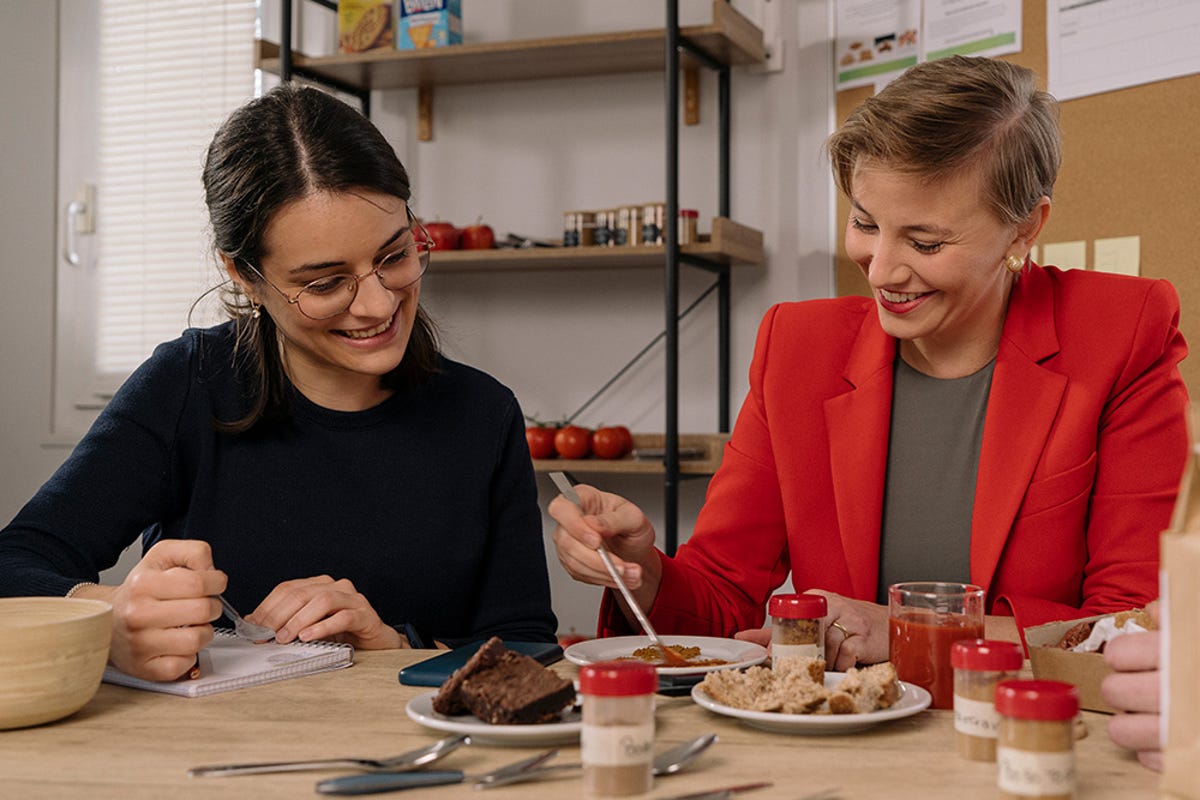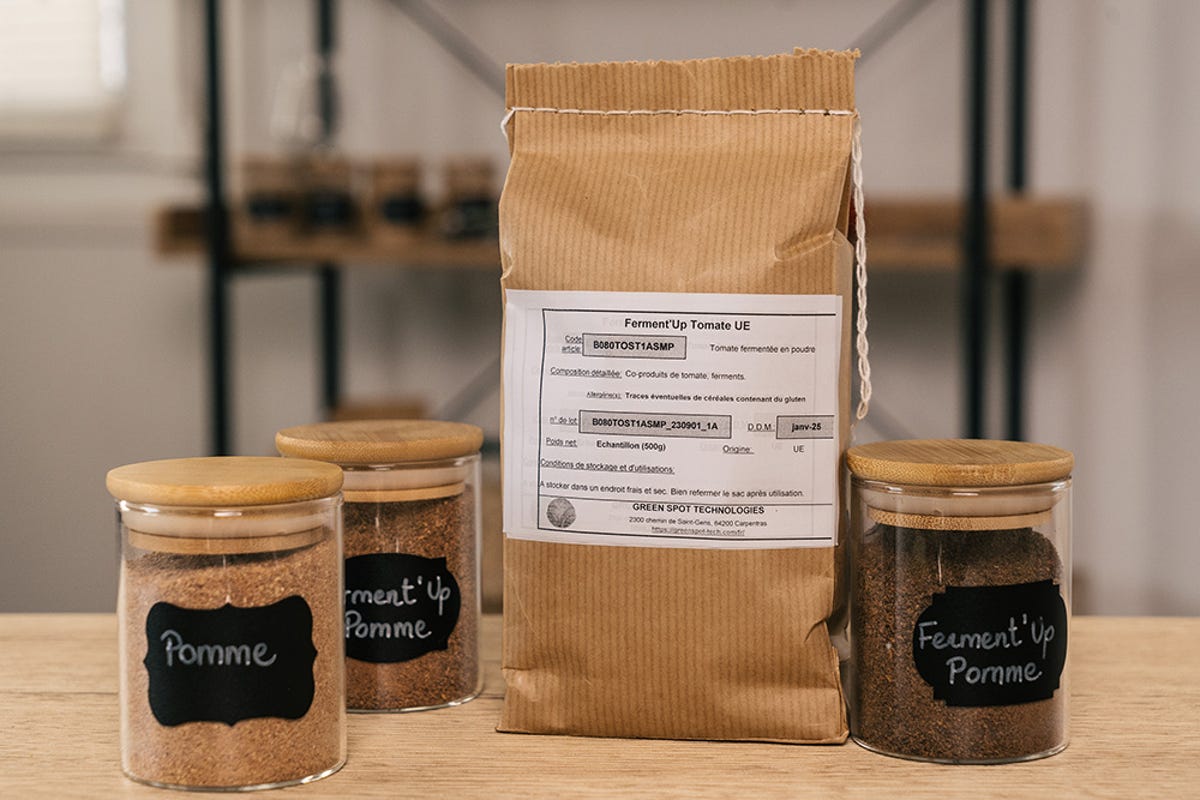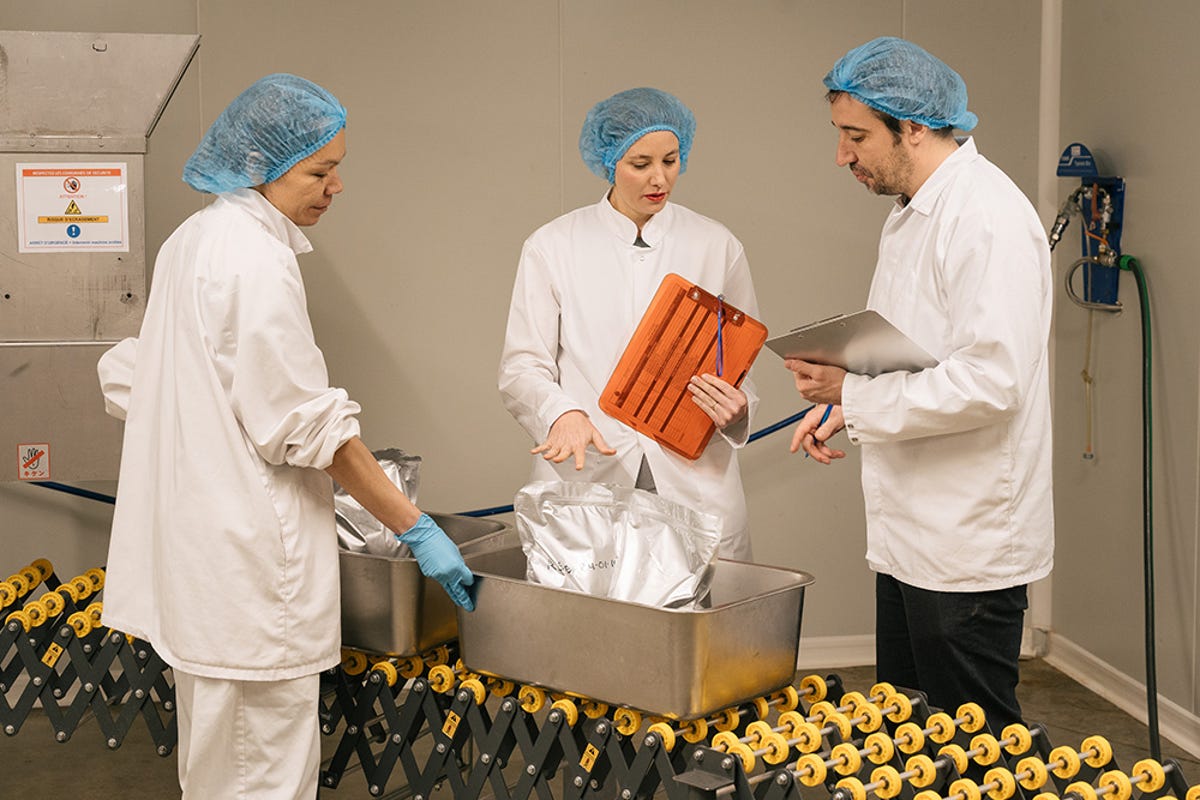Fellow Portrait
Ninna Granucci
Green Spot Technologies

Green Spot’s patented fermentation process turns plant-based by-products such as peels, pulps, and hulls into nutritious, tasty powders that become food ingredients.
Science & Technology Pioneer Award
France
Fellow
2024
Updated March 2024
Food waste harms people—and the planet
One-third of the world’s food production goes to waste, representing half of the industry’s carbon impact and approximately US$1 trillion in economic losses. Further, 60 percent of the food industry’s global carbon footprint is linked to ingredients. Reducing that waste by optimizing the use of these resources makes more food available and mitigates climate change.
“Food by-products like seeds and hulls are going to landfill,” says Green Spot Technologies founder Ninna Granucci. “It’s a shame because these contain the most nutritious parts of fruit, vegetables, and cereals.” But these parts are not always the most palatable; they have organoleptic (taste/flavor), nutritional (sugar/starches), and technical (pH) challenges. “Our fermentation platform transforms and upcycles these side streams.”
The food waste and the nutrition problems can be completely linked. That's what moves me.

Green Spot harnesses fermentation to turn food waste into tasty raw ingredients
Ninna founded Green Spot to bring better nutrition to the world without compromising food quality or the environment. “When I was finishing my master's degree in Brazil, I heard a lecture about food waste. It stuck with me. I thought about what I like to do—that's biotechnology—and how I could find a solution through biotechnology for this massive problem.”
Brazil, for example, produces tens of thousands of tons of apple juice annually. “But the rest of the apple—skin, pulp, and seeds—is wasted. The waste can’t be used as cattle feed because the sugar level is too high. I was looking for a way to match these two worlds in a solution: how to leverage the fermentation.”
Based on her PhD studies, Ninna developed the company’s patented fermentation approach to upcycling food production side streams. When the concept won competitive acclaim, she obtained funding and created the company in France.
“We ferment, dry, and grind these into a powder that becomes an ingredient that’s used in food products,” she says. “Our internal lab can test and produce prototypes to showcase the ingredients in different applications, but we don't sell a finished product.” For example, Green Spot is working with food companies Kraft and Heinz to use the tomato side stream to produce fermented ingredients for use in sauces.
It’s a way to really bring down the recipes’ cost but also the environmental cost of recipes. We say: nutrition, sustainability, affordability for everyone.

Less food waste means better nutrition for people and less CO2 in the atmosphere
To date, Green Spot has saved 150 tons of food waste and prevented the release of 450 tons of CO2, benefitting both society at large and individual consumers. The food by-products Green Spot has diverted from the waste stream represent enough fiber to address the “fiber gap” of 42 percent of the French population.
“We want to sell at least 100 tons of ingredients by the end of next year because we understand that revenue is linked to the number of people that we are reaching,” Ninna says. “Worldwide, that means we're going to better use the resources of our planet for providing better nutrition.”
The individuals benefiting from Green Spot’s fermentation technology may not be thinking beyond the tasty, nutritious meal on their plate. But a tasty bite represents a step toward a healthier planet as well.
We want to be the reference company for fermented and upcycled ingredients. We want to expand as far as possible, not only in France and Europe.





